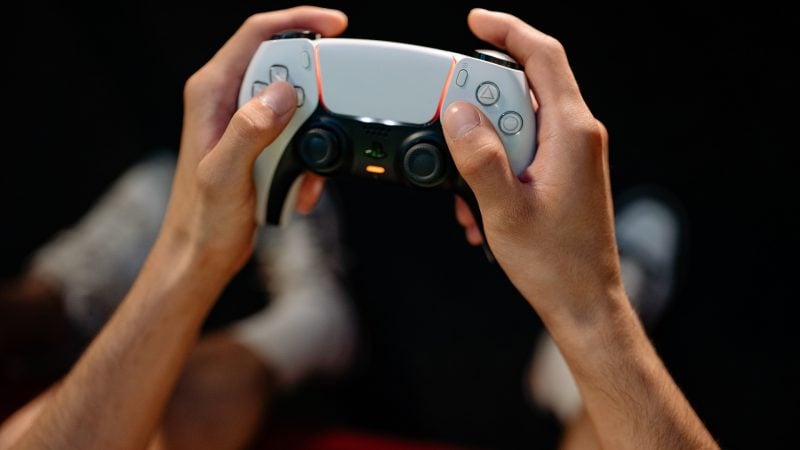
For years, the DualShock 4 played second fiddle to its Xbox counterpart due to the lack of native support on Steam.
- Recent data showed that 27% of Steam users who have played with controllers use PlayStation’s versions, a significant increase from 11% in 2018.
- To address this trend, Valve will clearly indicate game compatibility with these controllers starting in October.
- This update aims to make it more user-friendly, with an emphasis on the increasing number of PS4 and PS5 games being ported to Steam.
Valve’s well-known digital distribution platform, Steam, is going to experience some intriguing modifications that are tailored to work with PlayStation’s DualSense and DualShock controllers.
With a continuous focus on improving the user experience, the Steam platform’s evolution has made significant strides in making sure that its large user base feels represented and taken care of.
Roughly 27% of the 87 million Steam users who have played with controllers at least once in the past utilize the DualShock or DualSense on the PS4 or PS5, according to a recent developer-focused blog post. The percentage has increased significantly from 11% in 2018. This data demonstrates unequivocally how popular PlayStation controllers are becoming among Steam users.

Valve took notice of this growing trend and decided to enhance PlayStation controller support on their platform. October will see a clear indication on store and library pages on which titles work with these controllers. Gamers can anticipate visual cues such as icons and text that clearly indicate how much a game supports DualShock and DualSense controllers. In addition, it will be much easier for players to locate games that support PlayStation controllers, evaluate support within their existing collection, and determine which games require a controller in order to play.
Up until today, there was a clear void. Despite Steam’s well-known widespread controller compatibility, it wasn’t always apparent which particular type of controller a game supported. Because Xbox controllers are widely supported, many people choose them by default for a seamless experience. But the upcoming improvements promise a more welcoming atmosphere for fans of PlayStation controllers. The ability for players to select games according to which controllers they are compatible with will make the experience much more user-friendly.
The involvement of developers is crucial in this shift. In order to determine a game’s DualShock/DualSense compatibility, Valve is asking game creators to answer a questionnaire on controller support. The questionnaire will then automatically rate the answers. This program makes sure that consumers are provided accurate and trustworthy PlayStation controller support information.

It’s also important to consider Valve’s controller configurator. When combined with Steam, it makes it simple to integrate the DualShock and DualSense game controllers. This does not, however, imply native support, which can result in the lack of PlayStation button icons in the game, thus confusing players. Given the unique features that Sony’s controllers offer—such as the DualSense’s haptic triggers—that Microsoft‘s controllers lack, native PlayStation controller support becomes even more appealing.
Regarding the ramifications of this improved PlayStation controller support, many conjecture. Does this imply that Sony and you are forming an alliance? Platform inclusivity has always been Valve’s strong suit, as demonstrated by the porting of Portal to the Switch. As much as some optimists wish that Half-Life: Alyx were available on the PSVR2, it’s important to keep a realistic outlook. More and more PS4 and PS5 games are being converted to PC titles on Steam, which may be the reason behind Valve’s increased support for DualShock 4 and DualSense on Steam, rather than a sign that the company’s flagship titles are heading to Sony platforms.
In short, it’s a reaction to Sony’s increased spending on Steam porting of its first-party games.
In the end, Valve’s upcoming changes to Steam are a praiseworthy move in the direction of inclusivity and user-friendliness.

In addition to demonstrating its dedication to adapting to user preferences, Valve’s recognition and response to the growing popularity of PlayStation controllers solidifies its standing as a top digital distribution platform that prioritizes the gaming experience.
It’s unclear if this is a reaction to Epic Games‘ most recent attempt to unseat Steam as the preferred platform for most devs.
